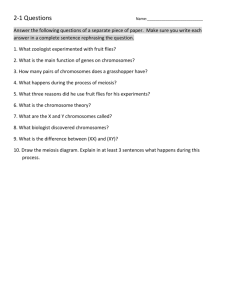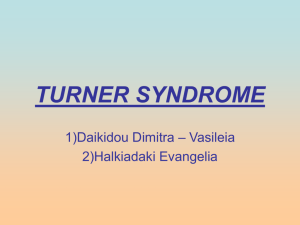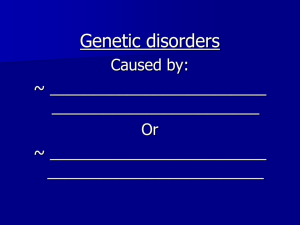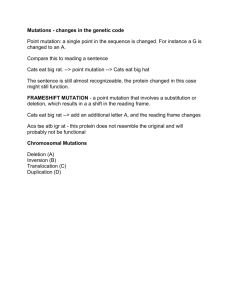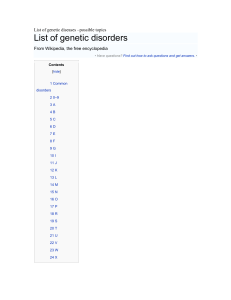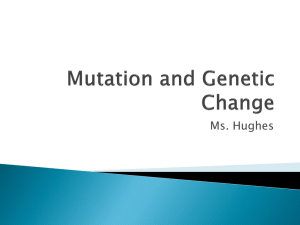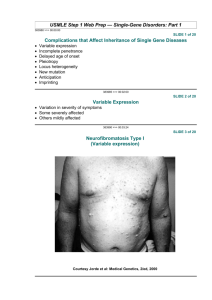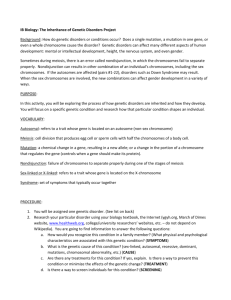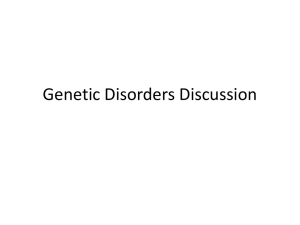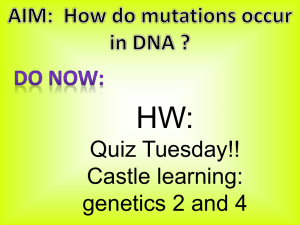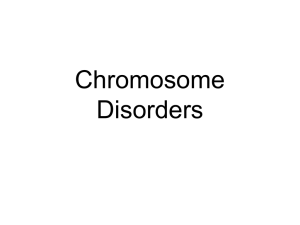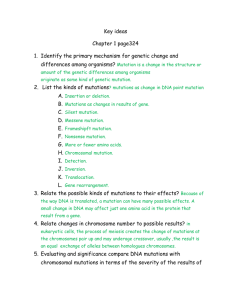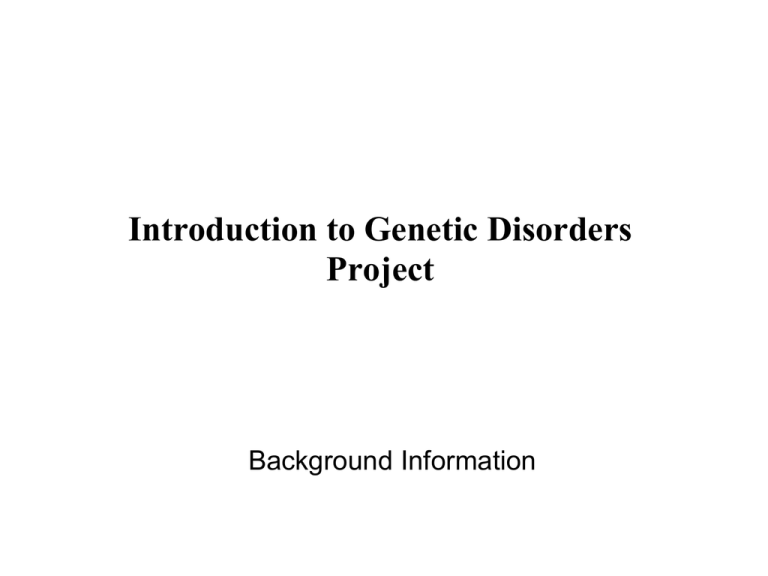
Introduction to Genetic Disorders
Project
Background Information
The function of genes
To control the production of proteins in the
organism's cells.
Proteins help
Determine the size, shape, and many other traits of
organisms
The 4 different bases of DNA
Adenine - (A)
Thymine - (T)
Guanine - (G)
Cytosine - (C)
A single gene can contain
Several hundred to a million or more bases
The order of the nitrogen bases
Along a gene forms a genetic code that specifies
what type of protein will be produced.
A mutation is
NOT
A mutation is
NOT
A mutation is
Any change in a gene or chromosome
Causes for a mutation
The Substitution of a single base for another
When chromosomes don't separate correctly
during meiosis
If a mutation happens in a body cell, it will only affect
The cells that carries it
(only that person)
If a mutation happens in a sex cell, it can be
Passed on to an offspring and affect the
offspring phenotype
Some mutations are harmful, some are helpful some are
neither
Helpful nor ___________
harmful
____________
Examples of mutations:
Skin cancer: Caused by
Over exposure to the ultraviolet radiation in
sunlight
Bacteria: bacteria is able to build up a resistance to
antibiotics (resistance is a mutation to help it survive)
Human Inheritance
Chromosomes
______________ determines if a person is male or female.
What are the two chromosomes for a female?
What are the two chromosomes for a male?
X
the egg in a female only carries the ____
chromosome.
X or _____
Y
The sperm in the male can carry the ______
chromosome.
Looking at the Punnet Square, what is the
probability that the couple will have a boy? A girl?
50/50
X
Y
X
XX
XY
X
XX
XY
Human Genetic Disorders
A genetic disorder is
Abnormal condition that a
person inherits through
genes or chromosomes
Genetic disorders are caused by
Mutations or changes in
a person's DNA
Achondroplasia
Wilson Disease
Alpha-1 Antitrypsin Deficiency (AATD)
Cystic Fibrosis
Charcot-Marie-Tooth
Down Syndrome
Duane Syndrome
Familial Hypercholesterolemia
Gaucher Disease
Fragile X Syndrome
Hemochromatosis
Hemophilia
Huntington’s Disease
Klinefelter Syndrome
Marfan Syndrome
Noonan Syndrome
Osteogenisis Imperfecta
Phenylketonuria
Progeria
Porphyria
Sickle-Cell
Turner Syndrome WAGR Syndrome
What Questions do you Expect to
Answer Through Research?
Types of Websites to Avoid
Sites that are too difficult to
understand
Wikipedia – although much of
the information is now
considered to be accurate, it is
a site that can be edited by
anyone.
To begin:
go to
www.genome.gov/10001204

